-
About
- About Listly
- Community & Support
- Howto
- Chrome Extension
- Bookmarklet
- WordPress Plugin
- Listly Premium
- Privacy
- Terms
- DMCA Copyright
- © 2010-2025 Boomy Labs

 Randy Bauer
Randy Bauer
Listly by Randy Bauer
A List to Shift Your Thoughts and Actions: Positive Health and Well-Being.
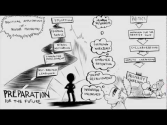
"What is Positive Psychology?" A "white board animation" sponsored by Test Prep Gurus. Written and Produced by: Nick Standlea Animation Technique Development Team: Gack Standlea, Jessie Franzetti, Jesse Standlea Animation: Tyreece Smith Voice: David Compton Special Thanks to: The Quality of Life Research Center Jeanne Nakamura Natalie Demchenko This project was sponsored by Test Prep Gurus (www.PrepGurus.com).

Scientists continue to discover links between personality and physical well-being. Of the "Big 5" personality traits- neuroticism, extraversion, openness, agreeableness and conscientiousness-neuroticism has again been confirmed as the most detrimental to your health. A study published in February of 2013 titled " Personality, Metabolic Rate and Aerobic Capacity" shows a link between a resilient personality profile and aerobic capacity.

Seligman, a psychology professor at the University of Pennsylvania and the guru of the "positive psychology" movement, abandons his previous emphasis on happiness, which he now views as simplistic, to examine how individuals might achieve a richer, multilayered goal: a life of well-being.

Martin Seligman delivers the keynote address at the Adelaide Thinkers in Residence 'Science of Wellbeing Conference', held in Adelaide on Feb 24 2012.

http://www.ted.com Mihaly Czikszentmihalyi asks, "What makes a life worth living?" Noting that money cannot make us happy, he looks to those who find pleasure and lasting satisfaction in activities that bring about a state of "flow." Follow us on Twitter http://www.twitter.com/tednews Checkout our Facebook page for TED exclusives https://www.facebook.com/TED
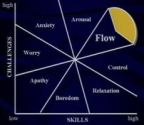
In my pursuit to become a world-class athlete I realized that there are two very distinctive phases of the flow experience that none of my coaches or mentors had ever differentiated.

On Tuesday I'll be guest-hosting CNBC's Squawk Box, a program that bills itself as the show that "brings Wall Street to Main Street." As well as discussing Cyprus and a possible euro-crisis, we are going to discuss the growing trend in corporate America of taking steps -- meditation, yoga, mindfulness trainings -- to reduce stress and improve health and creativity.

I don't find it alarming or depressing that rich psychological experiences may be rooted in the body, and observable physical processes. It doesn't make falling in love less meaningful, art less creative, or the mind less fascinating. Instead, I find it inspiring.

We grow up being taught to believe external things will bring happiness. Many of us learn to equate our own happiness with the level of success we achieve and the external things that come with the achievement.

We all want to be happy. But how, exactly, do you go about it? More stuff or less? More choice or less? The answers -- from psychologists, journalists, Buddhist monks -- may surprise you.
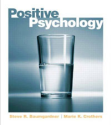
The Role of Positive Emotions in Positive Psychology, by Barbara Fredrickson

Savouring is used to help treat depression through increasing the intensity and duration of a positive emotion. Psychometrics such as the Emotion Regulation Profile-Revised (ERP-R) have found savouring to be an effective method for promoting positive affect, life satisfaction and wellbeing, supported further by qualitative research.

Working out at the gym might not be enough to stay fit if you spend much of the rest of the day sitting down. Americans are more sedentary than ever, government surveys show. That is a problem even among people who exercise regularly.

Delivering Happiness - Happiness, Achievement and Serendipity Infographic delivering happiness, book, happiness, delivering, at work, zappos, Tony Hsieh, business, corporate culture, entrepreneur
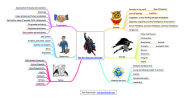
Mind Map and Video on finding and using your Key Character Strengths.

Dr Ilona Boniwell is one of the most prominent positive psychology academics in Europe. Her first bestselling book, Positive Psychology in a Nutshell, has been translated into many languages. She is the author or editor of five other books including the Oxford Handbook of Happiness.

Dr. Barbara Fredrickson, Kenan Distinguished Professor of Psychology at the University of North Carolina at Chapel Hill, discusses her new book, "Positivity"...

As technology makes its way into what seems like every corner of life, it can feel rather challenging to strike that careful balance of knowing when it's helpful and when it's not. And frankly, the last place you might expect an electronic gadget to come in handy is front and center during your mindfulness practice.

Gratitude to those who offer comments and add to this blog. I write here to echo the comments of others trying to shift after 65 years of patterning. I notice fear of doing it badly and making things even more difficult. I am working to shed the stuff that holds me in place.
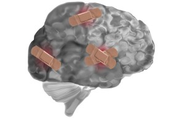
Have you ever had to stop and think about making your fingers move or wiggling your toes? For people who have experienced a stroke or suffer from a motor neuron disease, simple tasks like these can be nearly impossible. But here's some heartening news - brain-computer interfaces (BCIs) may help them regain some of what they've lost.
